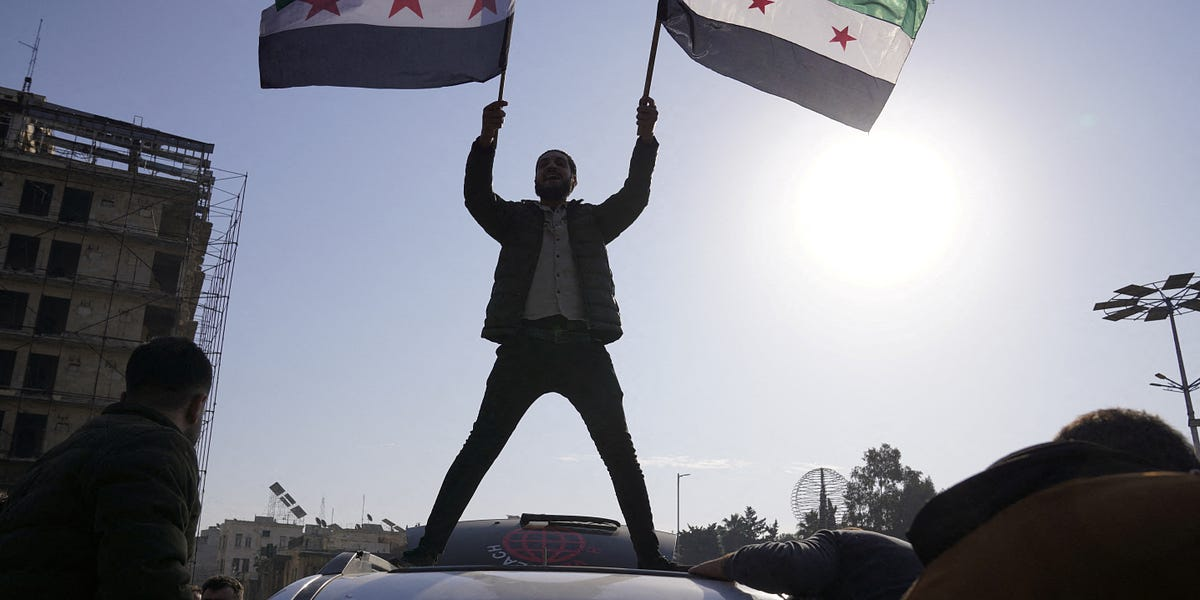A man holds Syrian opposition flags in Aleppo as he celebrates the end of President Bashar al-Assad’s authoritarian rule on Dec. 8, 2024. Photo by Karam al-Masri/Reuters
At first, I dismissed my mother’s call. “Something is happening in Syria,” she told me late last month.
An armed rebellion had erupted in the country’s north, but I was reluctant to believe it was significant. Years of repeated failures made it almost seem unreal. Yet, as the rebels swept across Syria with unprecedented speed, it was clear this time was different. City after city fell to the rebels, and in each, prisons were being emptied. Some detainees were seeing freedom for the first time in decades, their stories of survival emerging after 42 years of captivity. For the first time in more than a decade, I, too, could imagine freedom – for my family, my country, and my people.
The past 14 years have been a journey through pain, loss, and reflection. Today, as I write, Syria no longer feels like the distant memory it had become. There’s a weight lifting, a closure that’s difficult to fully comprehend but profoundly changes everything.
Before the latest armed rebellion that began on Nov. 27, Syria had long faded into the background of my life. The old habit of waking up and instantly checking my phone for news was long gone. I pretty much avoided even talking about Syria, sidestepping conversations with friends and relatives who wanted to. I had once judged others for distancing themselves from their Syrian identity, people I assumed were embarrassed to admit where they came from. Eventually, though, I found myself doing the same, casually saying I was from London, not out of shame, but to avoid the ordeal of telling a story I did not want to revisit.
For much of the last 14 years, however, Syria consumed me, leaving everything else, including my daughter, secondary. She was born just days before the first protests in Damascus in 2011. At the time, dedicating myself to the fight for freedom in Syria seemed like a given, even necessary. Millions of Syrians were rising to demand change, and I justified my involvement with the reasoning that it would ultimately secure a better future for those I loved.
But as the popular uprising unfolded, the Assad regime’s zero-tolerance policy became brutally apparent. Entire neighborhoods were locked down, people were kidnapped from their homes, tortured, and killed. The regime’s security apparatus targeted protesters and anyone involved in disseminating news. I joined one of the activist networks in Damascus, and while we would meet each other every now and then when it was necessary, we largely hid our identities and communicated online, making sure to take every precaution one could think of; a single mistake could have been fatal for all of us.




